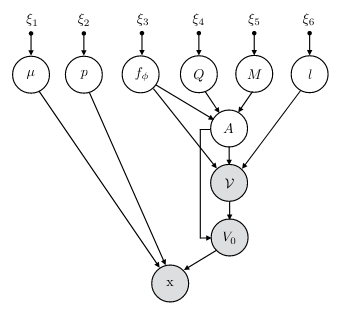Abstract
 |
In this work we propose a statistical approach to handling sources of theoretical uncertainty in string theory models of inflation. By viewing a model of inflation as a probabilistic graph, we show that there is an inevitable information bottleneck between the ultraviolet input of the theory and observables, as a simple consequence of the data processing theorem. This information bottleneck can result in strong hierarchies in the sensitivity of observables to the parameters of the underlying model and hence universal predictions with respect to at least some microphysical considerations. We also find other intriguing behaviour, such as sharp transitions in the predictions when certain hyperparameters cross a critical value. We develop a robust numerical approach to studying these behaviours by adapting methods often seen in the context of machine learning. We first test our approach by applying it to well known examples of universality, sharp transitions, and concentration phenomena in random matrix theory. We then apply the method to inflation with axion monodromy. We find universality with respect to a number of model parameters and that consistency with observational constraints implies that with very high probability certain perturbative corrections are non-negligible. |
Mafalda Dias et al., Inflation as an information bottleneck: a strategy for identifying universality classes and making robust predictions, J. High Energ. Phys.